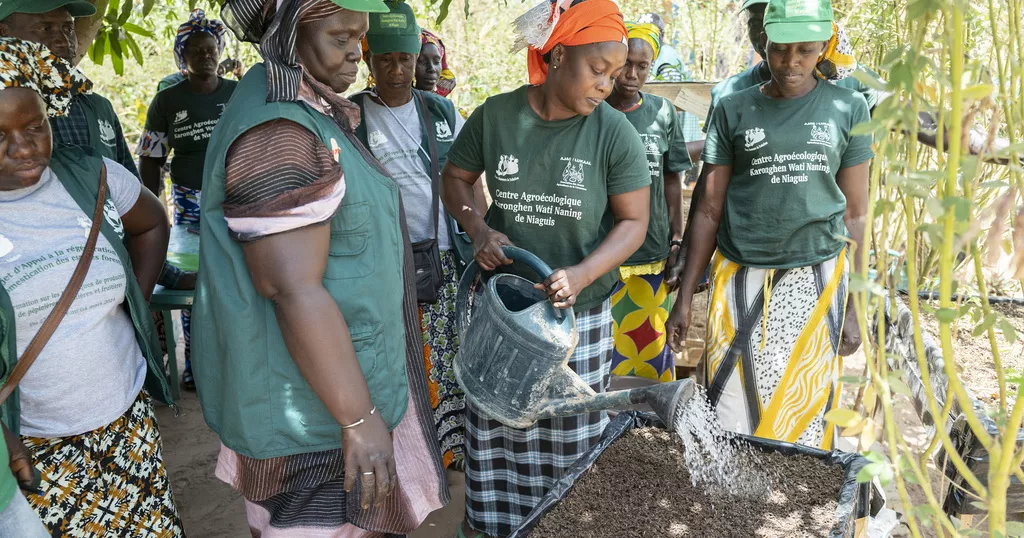Read in
When Mariam Sonko’s father died when she was a young child, her mother struggled to take care of her and her siblings. As is the case across Senegal and West Africa generally, women are not entitled to land ownership as it is expected that when they marry, they will leave their community.
After moving to her husband’s town, Sonko and a group of women convinced a landowner to rent to them a small plot of land in return for part of their harvest. They planted fruit trees and started a market garden. Five years later, when the trees were full of papayas and grapefruit, the owner kicked them off.
Sonko is now the president of a 115,000-strong rural women’s rights movement in West Africa called We Are the Solution.
She works on training female farmers who traditionally have no access to education, explaining their rights and financing women-led agricultural projects.
Sonko’s training center now employs over 20 people, with support from small organizations like the Agroecology Fund and CLIMA fund. In one week, Sonko and her team trained over 100 women from Senegal, Guinea-Bissau and Gambia in agroforestry and micro gardening.
After she started to earn money, people noticed that she made investments in her children’s schooling and clothes.
Now another challenge has emerged affecting women and men alike: climate change.
In Senegal and the surrounding region, temperatures are rising 50% more than the global average, according to the Intergovernmental Panel on Climate Change, and the UN Environment Program says rainfall could drop by 38% in the coming decades.
Where Sonko lives, the rainy season has become shorter and less predictable. Saltwater is invading her rice paddies, caused by rising sea levels. Some farmers have even abandoned their rice fields.
Sonko is now trying to set up seven new training centers across southern Senegal. “There’s too much demand,” she said. Glancing back at the circle of women studying in the fading light, she said: “My great fight in the movement is to make humanity understand the importance of women.”



